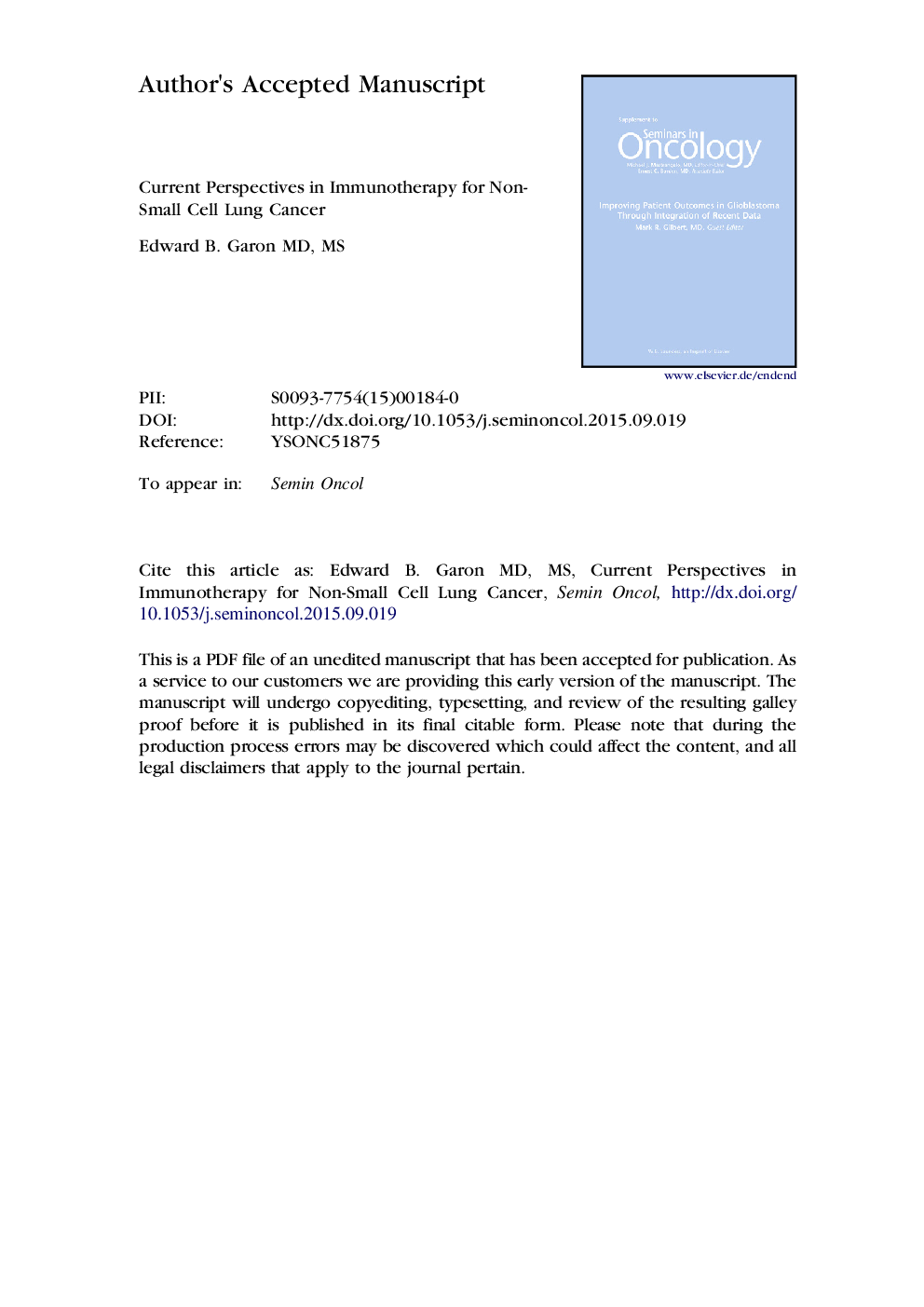| Article ID | Journal | Published Year | Pages | File Type |
|---|---|---|---|---|
| 2161879 | Seminars in Oncology | 2015 | 31 Pages |
Abstract
In non-small cell lung cancer (NSCLC), the first immune checkpoint inhibitor to be approved by the US Food and Drug Administration was nivolumab, based on a survival advantage over docetaxel in recurrent squamous NSCLC, a difficult-to-treat histology. In addition, several other immune checkpoint inhibitors are also in late-stage development. Most of these agents inhibit the programmed cell death protein 1 (PD-1) pathway, targeting either the PD-1 receptor or its ligand, programmed cell death ligand 1 (PD-L1). In addition to nivolumab, pembrolizumab is a PD-1 inhibitor under investigation in NSCLC, and atezolizumab (MPDL3280A), durvalumab (MEDI4736), and avelumab (MSB0010718C) are PD-L1 inhibitors under investigation. The cytotoxic T-lymphocyte-associated antigen 4 (CTLA-4) immune checkpoint inhibitors ipilimumab and tremelimumab are also under investigation in NSCLC, largely as part of combination approaches rather than as monotherapy. PD-L1 expression as a potential biomarker to select patients most likely to respond to inhibitors of the PD-1 pathway has been widely studied.
Related Topics
Life Sciences
Biochemistry, Genetics and Molecular Biology
Cancer Research
Authors
Edward B. Garon,
